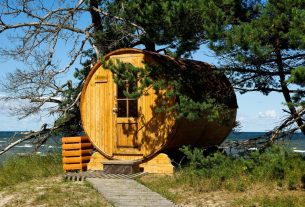Faced with a worrying increase in coronavirus infections, large German cities including Berlin are imposing a shutdown on bars and restaurants from Saturday that has alarmed the industry.
In Berlin, they will be forced to close their doors from Saturday evening between 11:00 p.m. and 6:00 a.m., a time slot which usually sees tens of thousands of people out and about every weekend in the capital where many bars remain open all night.
The shutdown, which affects all stores except pharmacies and petrol stations, will remain in place at least until October 31. The sale of alcohol in service stations will also be banned.
Frankfurt has taken a similar measure, which came into force on Friday evening, with the closure of bars and restaurants and the ban on the sale of alcohol between 10 p.m. and 6 a.m.
And on Saturday morning Cologne, capital of the most populous region North Rhine-Westphalia, announced a similar measure from 10 p.m.
The rate of infection in the city has indeed exceeded the bar of 50 per 100,000 for the seventh consecutive day — meaning at least 50 new daily infections per 100,000 inhabitants.
New blow for Berlin
In Berlin, it is a new very hard setback for the city, already badly affected by the closure of clubs for several months.
Nightlife in the German capital is an essential component of the local economy. Clubs alone brought in over €1.5 billion in 2018.
But the epidemic is worrying in the capital, with more than 400 new daily cases. Berlin is now classified as a “risk zone”.
“This is not the time to party”, insisted Berlin’s democratic mayor, Michael Müller. “We want to prevent another more severe lockdown”, he added, with a particular message for people under 40.
Angela Merkel argued in favour of the measure on Friday, after consulting mayors from Germany’s 11 largest cities.
“I am fully aware that restrictions such as closing time and strict rules over the sale of alcohol are binding and that the restaurant sector is hit hard,” said the Chancellor.
“But we must do what is most important to us this autumn and this winter,” she added, setting as “priorities” the need to keep the economy running and school activities operating.
“After three glasses of wine, we respect protective measures a little less”, said Dirk Behrendt, in charge of Berlin’s justice system.
The Bars of Berlin collective considers the measure “disastrous” and is considering possible legal action.
“I am at a loss for words, I feel so much rage and indignation,” one of the collective’s members, Roberto Manteufel, told the Berlin Economic Affairs Committee on Wednesday. He says the shutdown, unprecedented in the capital since 1949, risks inflicting a “coup de grace” for bars.
Illegal parties
Berlin had some 9,800 restaurant chains in 2018, including more than 1,700 bars or pubs, according to the Statista institute.
In Frankfurt too, discontent is mounting. The Frankfurt Gastronomy Initiative association is threatening legal challenges against a closure order which it believes may lead to out-of-control gatherings in the street.
To prevent this, the city of Berlin has decided to severely restrict social contact.
From now on, between 11:00 p.m. and 6:00 a.m., outdoor gatherings should not exceed five people. During the day, the limit remains fixed at 50.
This did not prevent opponents of mask-wearing from calling for a new rally in central Berlin on Saturday afternoon.
The restrictions are even stronger for indoor gatherings, which are limited to 10 people.
These measures mainly target home and illegal parties, which the Berlin authorities consider are responsible for spreading coronavirus.
euronews.com
pixabay


















